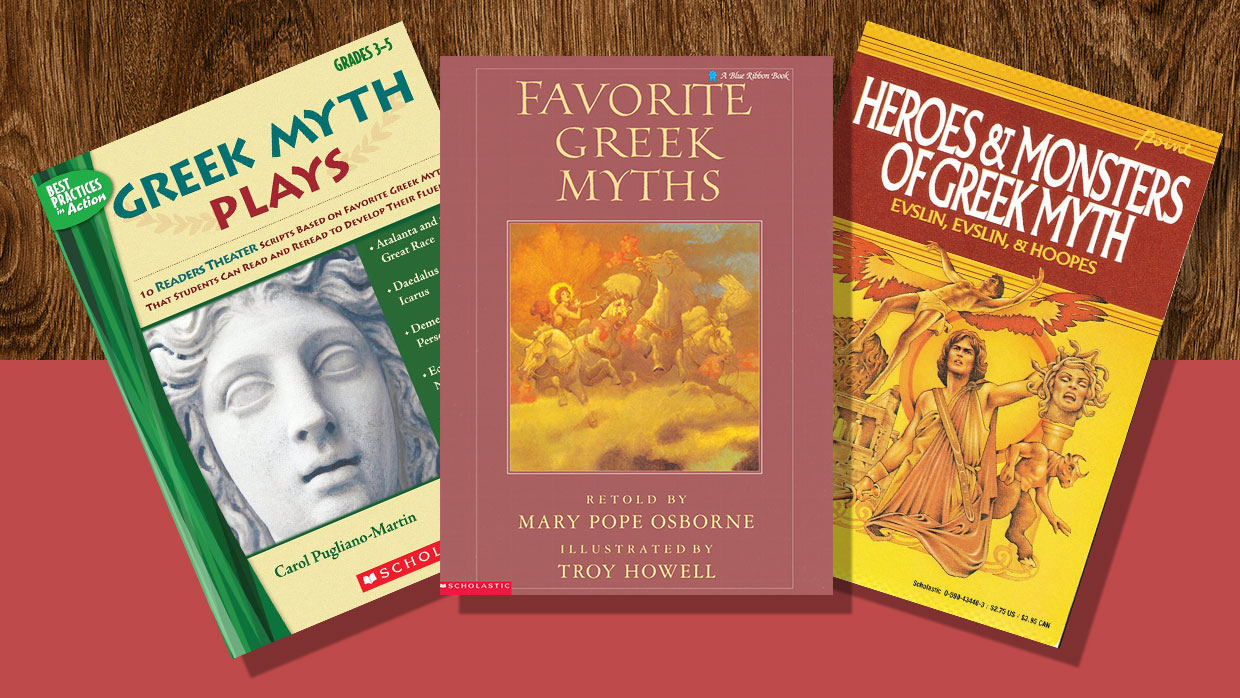To put it simply, Greek mythology is confusing. First, there’s a long list of gods and goddesses—with sometimes hard-to-pronounce names—who star in these complicated tales. And adding to the confusion are the many complex plots, and subplots, which often overlap one another.
But even with all its complexities, Greek mythology is totally engrossing. Students always enjoy reading stories about lightning bolt-wielding gods and erupting volcanoes. They even love to act these stories out, if they’re given the chance.
To introduce students to Greek mythology and ultimately inspire them to put on a few performances based on these fascinating myths, there are a number of books and activities teachers can turn to. Here’s where to start:
Heroes and Monsters of Greek Myth (Grades 7–12)
In Heroes & Monsters of Greek Myth, readers are introduced to the most compelling characters of the genre—the heroes and monsters. This book also features 4 classic stories of the demigods and 2 fables, with an afterword that provides students important information regarding the structure of Greek mythology.
Greek Mythology Activities (Grades 5 and up)
Interviewing a god or goddess and mapping activities in Greek Mythology Activities help students understand everything they need to know about Greek mythology and learn important vocabulary that’s so instrumental to the genre.
Favorite Greek Myths (Grades 5–7)
This book features 12 classic stories from Greek mythology, including stories of Echo and Narcissus, and Cupid and Psyche.
Curtain Call
With the above books and activities, students will build a solid foundation of knowledge related to Greek mythology. So now, of course, it’s time to put on a performance. Using Greek Myth Plays as a guide, students can pick short scripts to act out that feature parts to accommodate all your young readers. Here’s a 5-day plan for putting on a class play:
Day 1
Give students the script and ask them to read it independently. If they come across any new vocabulary, encourage them to look those words up, and once they’re done reading, ask them to write a brief summary of the play. Additionally, choose a director and have them assign roles.
Day 2
Help students read through the play and brainstorm ideas for staging, props, costumes, and music. Encourage the director to assign additional tasks to actors and members of the stage crew.
Day 3
With supplies brought in by students, start creating the set and rehearse the play. Instruct the director to reflect on what’s going well and where there’s room for improvement.
Day 4
Put on a dress rehearsal.
Day 5
It’s showtime!
Putting on these performances takes time and patience, but the more you do, the easier the process becomes. You’ll quickly see all the rewarding aspects these performances bring out in students, from improved fluency skills to better teamwork. Most importantly, learning about something as complex as Greek mythology and performing plays based on these myths will expand students’ comfort zones and help build their confidence. If they can put on a performance and act out a complex story filled with Greek gods, goddesses, heroes, and monsters, they can do anything!
